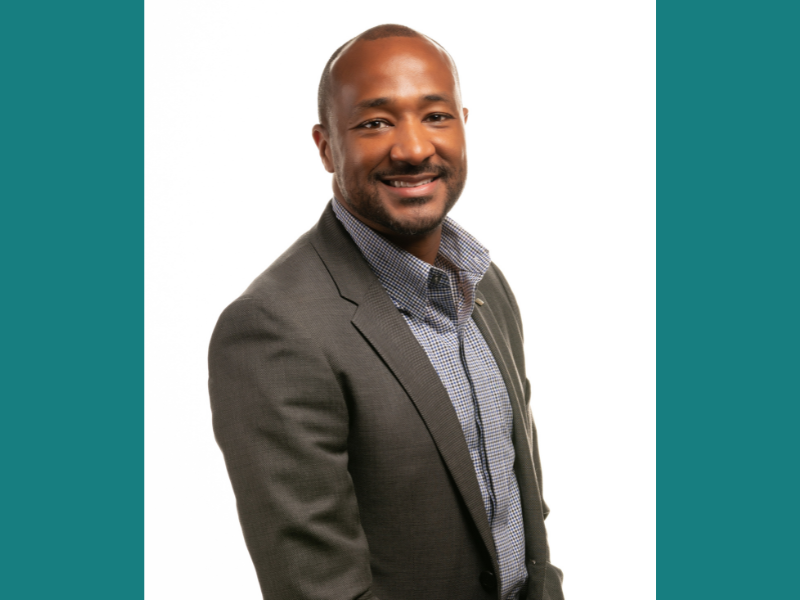Alum Jarod Davis wants to train a new generation of environmental policymakers
Jarod Davis graduated Tulane Law School in 2005 with a Juris Doctor, but to the dismay of his parents, he didn’t head to the courtroom.
Instead, he entered the public policy arena working for Dow Inc. where he rose through the ranks to become the multinational company’s Director of U.S. Policy & Issues Management.
As his career evolved, he recognized the lack of diversity across the chemical industry for those with expertise in the intersection of environmental law, policy, and corporate governance.
This fall, he looked home to Tulane to establish the Jarod D. Davis Environmental Equity Externship, an annual summer position at the nonpartisan Environmental Law Institute (ELI) in Washington, D.C. for Tulane Law students interested in environmental law and policy.
“This is not a new passion for me by any stretch,” said Davis. “This has been a passion of mine for decades. With this externship, we can expose a new generation of students to environmental policy so that they can effectuate change while still being true to themselves and their interests-- whether that is sitting in the corporate boardroom or leading a non-profit organization.”
The gift funds summer work at ELI, a 50-year-old nonpartisan environmental law and policy think tank in Washington, D.C. recognized as a leader in environmental justice. The student recipient will spend 10 weeks in the nation’s capital and focus on environmental equity projects that strive to advance environmental rights through research and model bill drafting, support overburdened communities on sustainable development planning, and author reports to support community-driven environmental justice efforts.
“Environmental Social Governance (ESG) is an emerging area, and there is a unique opportunity to bring a diverse set of voices to an area that now clearly links civil rights and environmental rights,” said Davis. “Environmental law has traditionally lacked diverse representation, and this opportunity will allow students to work across the board not just on litigation but on actual policy collaboration with experts in the field, from academics to former regulators.”
Davis’ gift to Tulane comes at a time the nation is seeing important trends developing in environmental law and policy: There is a growing awareness of social justice issues and the connectivity to other issues like environmental justice, climate justice, and health equity. Davis said he wants to create a pipeline for Tulane Law students from diverse backgrounds to use their JD not only in the practice of law, but also in advancing public policy and access to environmental justice.
“Jarod is a dreamer with both a unique vision and the generosity to create a pipeline opportunity that will create a space for the next generation of lawyers to soar as they advocate and tackle the significant policy issues surrounding environmental injustice,” said Professor Tonya Jupiter, the law school's Associate Dean for Experiential Learning and Public Interest Programs.
Davis’ own background is telling as to why he would support such a position. A native of Alabama from a family of scientists (his mother was a geologist and his father a community pharmacist) Davis’ own passion in the field grew early in his life. He went on to earn a B.S. in environmental management from Louisiana State University, where he connected the science with who was getting environmental protection. “I enjoyed learning the scientific principles of my degree program like how to collect and test water samples. Yet, I was more intrigued by the policies that govern clean water regulations. This is what initiated my interest in regulatory and legislative aspects of environmental policy.”
He chose Tulane to launch his externship with ELI because he said the university has a strong commitment to racial and social diversity, along with its nationally-ranked environmental law program. Tulane Law also houses a Legislative Advocacy Clinic run by Professor David Marcello where students learn how to advocate and draft policy, and assist legislators in writing strong, lasting laws. Davis is an alumnus of the clinic.
“When I was a student lawyer for the Legislative Clinic with David Marcello, I learned the tenets of stakeholder management, regulatory promulgation and community engagement. And, these are tools that I am still using in my job 20 years later!” said Davis.
Davis also chose law students – rather than public policy graduates – to benefit from the externship because law school lacks exposure to the policy arena.
“I also want law students to understand the universal nature of the JD, that it can be applied to all types of careers, not just direct litigation,” he said. “The next generation of environmental lawyers will understand not just the law, but policy, collaboration, and politics. Hopefully, we can capture those students who are passionate about policy and the law and helping their communities.”

